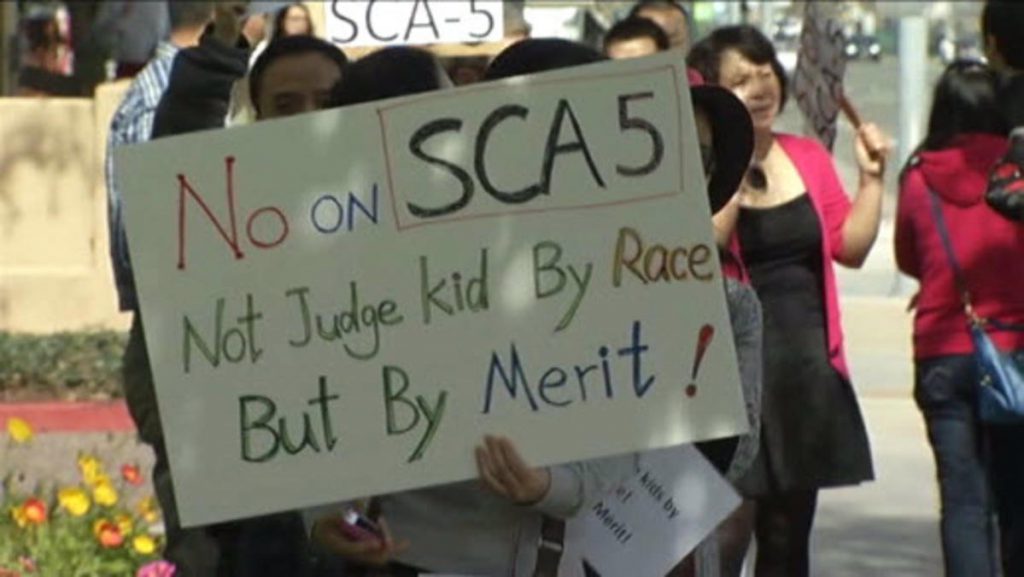by EUGENE YI
It’s survey time again. More than two thirds of Asian Americans in California support affirmative action, according to new figures released this week by the National Asian American Survey, the group behind some of the best Asian American-centric polling of the last few years. These numbers, conducted Aug. 14-28 in a collaboration with the Field Poll, align with what’s generally been reported the past few years, and are given extra salience after the brouhaha earlier this year when a vocal Asian American opposition to affirmative action torpedoed a California state Senate amendment (known as SCA 5) that could have potentially restored some aspects of the policy to university admissions.
But as with everything Asian American, digging a little deeper into the survey numbers is crucial, something that Karthick Ramakrishnan, of the University of California, Riverside, and Taeku Lee, of the University of California, Berkeley, the authors behind the survey, understand intimately; the work they’ve done for the National Asian American Survey spotlights some of the difficulties in surveying Asian Americans.
The poll interviewed 1,280 registered Californian voters of all ethnicities, with oversampling of Chinese, Korean and Vietnamese populations, as well as in-language interviews in Korean, Mandarin, Cantonese, Vietnamese, and Spanish. Overall, 68 percent favored affirmative action, 25 percent opposed, and 9 percent had no opinion. Asian Americans showed even higher levels of support, with 69 percent in favor, 13 percent against, and 18 percent with no opinion. African Americans and Latinos, meanwhile, registered even higher rates of support, at 83 and 81 percent, respectively.
Disaggregation in Asian American polling is always part of the fun, and they reveal Korean Americans to be outliers. About 47 percent of Korean Americans favored affirmative action, but a strikingly high 40 percent offered no opinion. Overall, 18 percent of Asian Americans offered no opinion. But does this indicate some well of ambivalence regarding the policy? Digging a bit deeper, Ramakrishnan said that 75 of the 107 Korean interviewees conducted their polls in Korean, of whom 55 percent offered no opinion, 35 percent were in favor, and 10 percent were opposed. The results stand out from the NAAS 2012 survey, which did not find Korean Americans to be outliers when it comes to being unopinionated on affirmative action, according to Lee. More polling appears to be required on this question.
A split was also found between northern and southern California, with 81 percent of Northern California responses in favor of affirmative action, and 60 percent in Southern California. This would seem to reinforce the regional base of much of the anti-affirmative action protesting of earlier this year. But it could also reflect some of the regional disparities in Southern California, according to Mark DiCamillo, director of the Field Poll. Liberal Los Angeles is balanced out by the surrounding counties, he said.
All of this provides an object lesson in some of the frustrating complexities of modern American democracy. Was it really a small and vocal minority that hijacked the conversation around affirmative action earlier this year, as some have alleged? Would the protesters have been included in a survey like this, given that many of the protesters were likely recent immigrants, and this survey relied on registered voter rolls? What other groups aren’t being included when we talk about polling?
Regardless, these numbers will inevitably be widely quoted, and if these data accurately reflect the public opinion, then at least with regards to the contentious SCA 5 battle, it’s a reminder of the power of the vocal minority. Or in this case, a minority of a minority.
All of this goes to show the difficulty in trying to poll, let alone to extrapolate from such numbers. So as always, a hat tip to Ramakrishnan, Lee and their colleagues for performing such important work. Ramakrishnan offered to provide KoreAm with more detailed analysis of the Korean American population, which will be posted once it becomes available.
The survey also included some general question on the state of the country, as well as on the death penalty. More information can be found here.
Featured image: A protestor holds up a sign opposing the controversial affirmative action measure in California, known as SCA 5. Image via NBC Bay Area.









